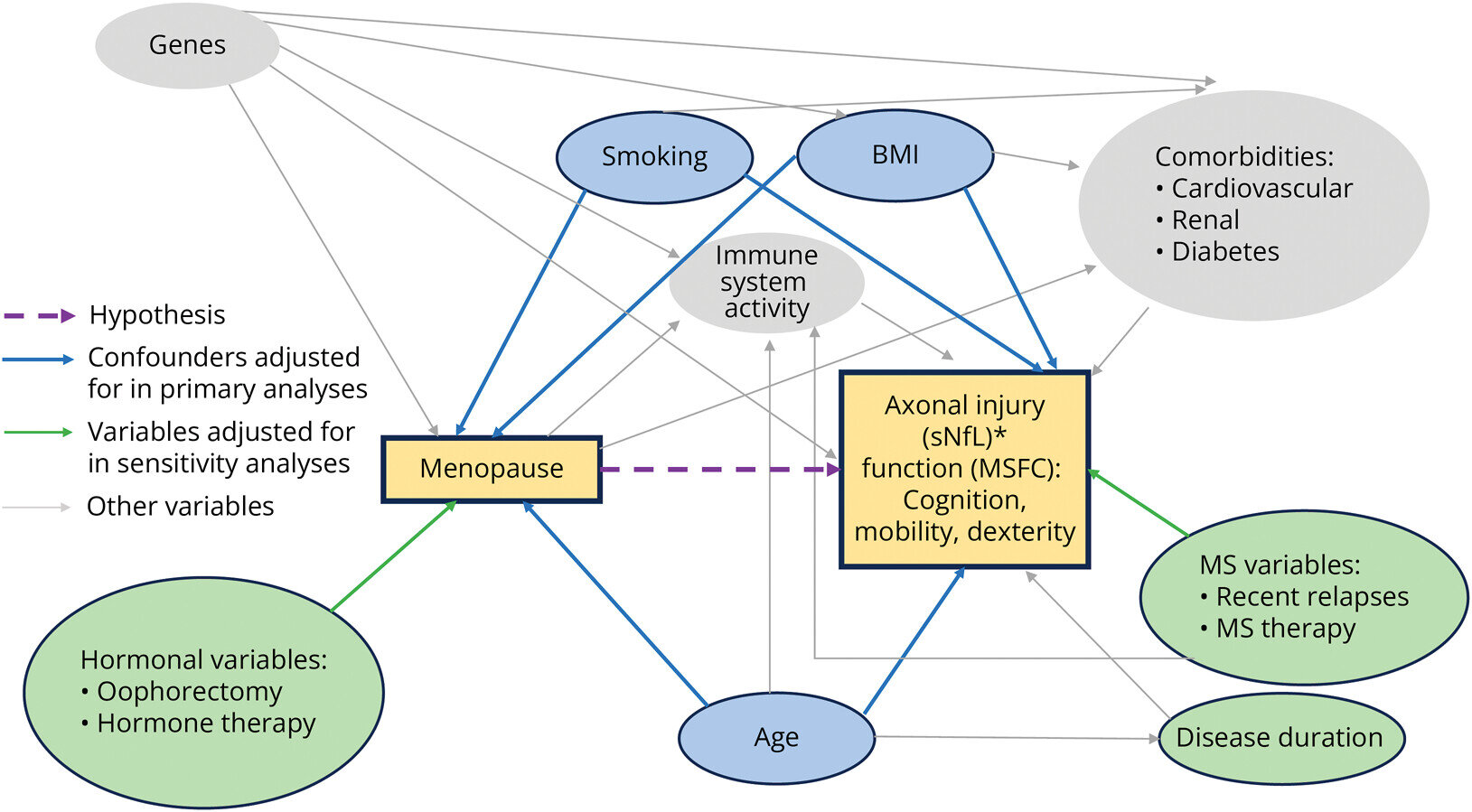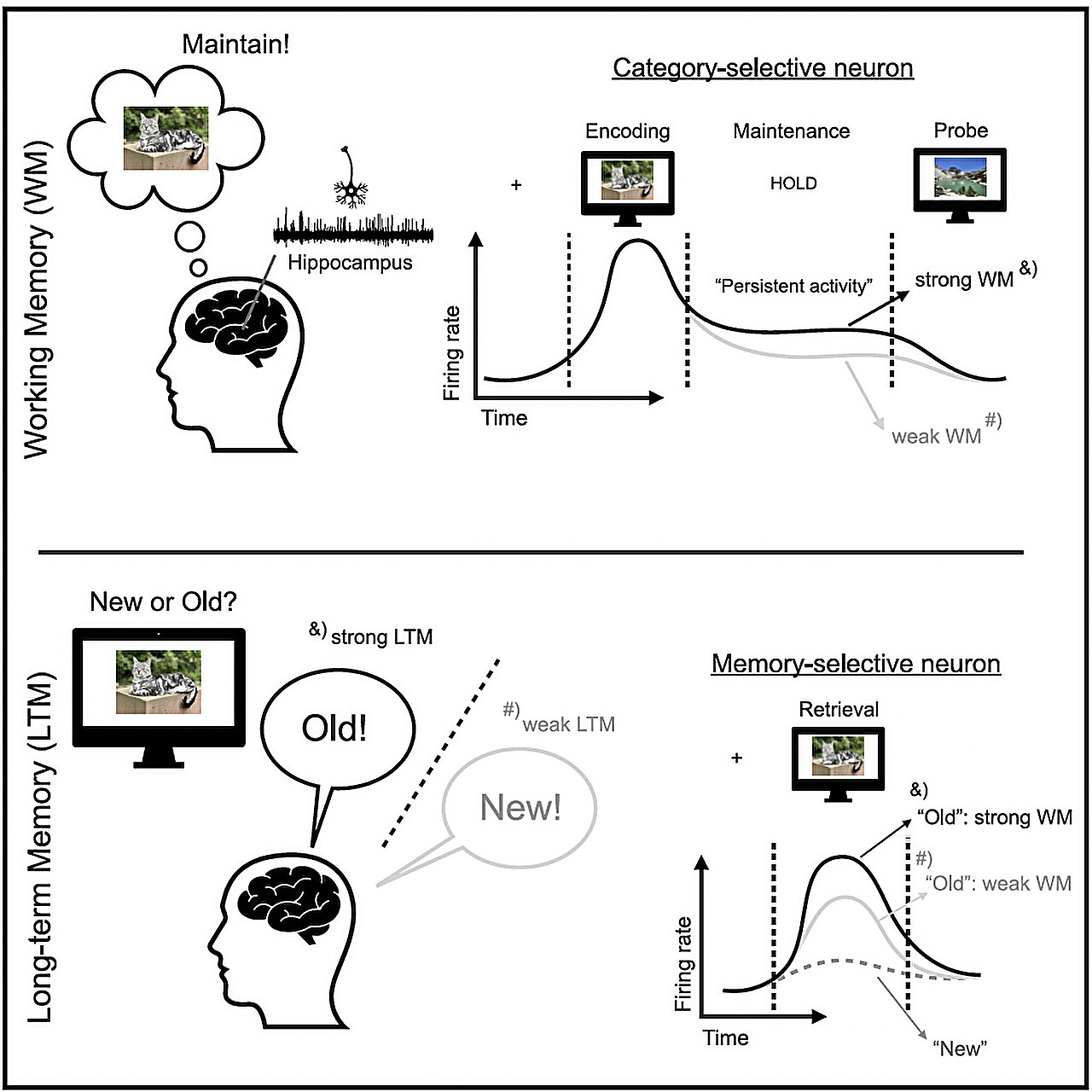
Hypothesized relationship between covariates and outcome measures. Note that age is corrected for in the exploratory outcome, age-adjusted sNfL. sNfL = neurofilament light chain serum. Credit: Neurology (2024). DOI: 10.1212/WNL.0000000000210228
A new study by UC San Francisco has found that menopause revs up the progression of multiple sclerosis (MS).
The research is published in the journal Neurology.
menopause, patients’ walking Following slowed down. There were also more subtle changes in fine motor skills and cognitive ability.
The study raises new questions about whether hormone therapy can help the 30% to 40% of MS patients who are perimenopausal or postmenopausal.
Women account for 75% of MS patients, and hormones play a significant role in the course of the disease.
“We know that hormonal changes during puberty can trigger autoimmune diseases like MS,” said Riley Bove, MD, an associate professor of neurology at UCSF. Bove is the corresponding author of the study. “We see a lower rate of relapse during the third trimester of pregnancy, followed by a postpartum rebound.”
The study followed 184 women before and after menopause. It was based on data from two UCSF studies, EPIC and ORIGINS, that seek to discover the causes of MS and the way it develops. Participants were evaluated each year for an average of 13 years.
Other research has reached contradictory conclusions about the role of menopause in MS progression. Some studies used a tool called the Expanded Disability Status Scale (EDSS) that primarily focuses on walking assessment.
“The EDSS has a number of limitations and may also measure changes that are not related to MS, such as older age and multiple medication use, both of which can affect mobility,” said Hannah Silverman, a UCSF medical student, who is the first author of the study.
Declines in walking speed, dexterity and cognitive ability
In the current study, researchers used the MS Functional Composite (MSFC), which captures walking speed as well as other tasks. They found that following menopause, it took participants longer to complete a 25-foot-walk after accounting for age, weight and tobacco use. They also found more subtle declines in dexterity and cognition.
The researchers found that a biomarker in the blood called neurofilament light chain (NfL) increased after menopause. This indicates increased degeneration of nerve cells—a hallmark of advancing MS—and validates the MSFC findings.
Just 31 of the 184 participants (17%) took estrogen therapy, not enough for researchers to be able to draw conclusions about its benefits. Research in animals suggests that sex hormones have neuroprotective effects, and one small study has tested the protective effects of testosterone in men.
“The study shows that menopause represents a unique factor in MS progression, even when we take into consideration the effects of aging,” said Bove, who is also a member of the Weill Institute for Neurosciences. “But we would need large, randomized trials that compare hormone treatment to a placebo before we can know the true effects of hormone therapy in a condition as complex as MS.”
More information:
Hannah E. Silverman et al, Association of Menopause With Functional Outcomes and Disease Biomarkers in Women With Multiple Sclerosis, Neurology (2024). DOI: 10.1212/WNL.0000000000210228
Citation: For women with multiple sclerosis, mobility takes step backward at menopause (2025, January 9) retrieved 9 January 2025 from
This document is subject to copyright. Apart from any fair dealing for the purpose of private study or research, no part may be reproduced without written permission. The content is provided for information purposes only.



